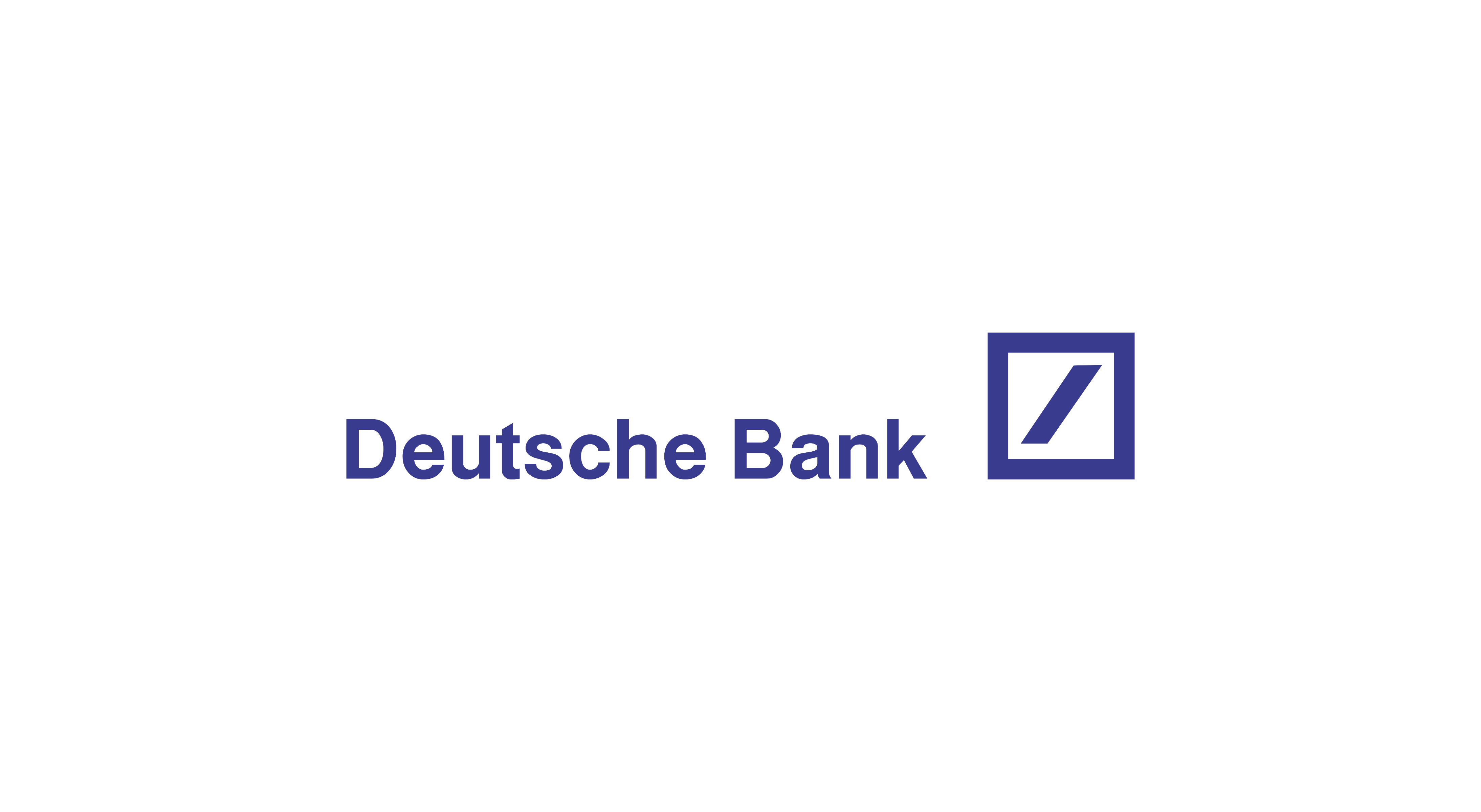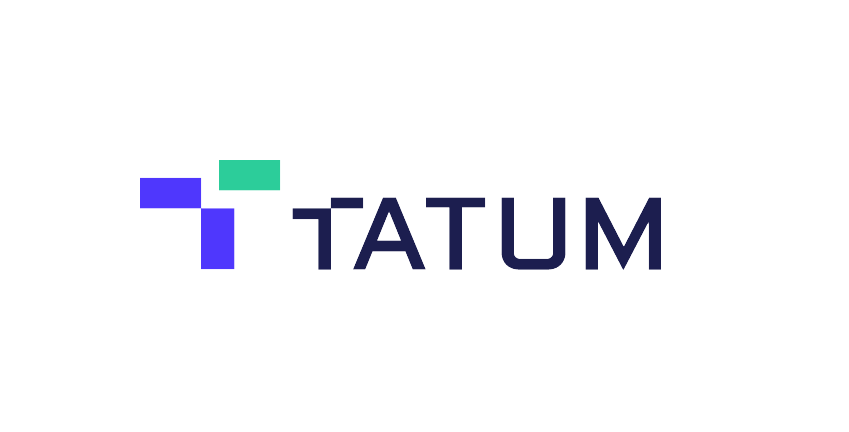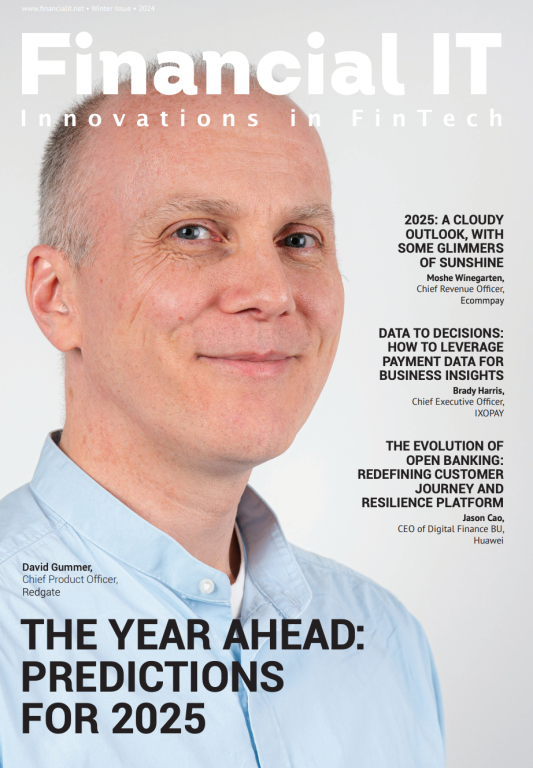Published
- 05:00 am

It’s an age-old conundrum; you need money to buy expertise but you need expertise to raise money. The two go together but not always like a hand in a glove!
One company, based in the UK, has made it their mission to tackle this problem and the level of interest has been “staggering” according to founder and CEO, Ian Wright.
Virtualnonexecs.com is the UK’s largest peer-2-peer non-executive director community with almost 12,000 highly experienced non-executive directors. Wright says “Many of our members have had successful executive careers and are now enjoying helping businesses at all stages of their life-cycle. But many do not simply wish to work for a ‘day’s pay’, they want to be a part of the journey and often, this means taking a stake in their clients’ businesses in the form of equity participation”.
On the 6th October, Virtualnonexecs.com ran its inaugural investor event. The event saw three tech enabled businesses pitch to 90+ investing non-executives. The attendees had an indicated £80 million in available funds to deploy. Michael Mateer of Virtualnonexecs ran the event, alongside Oliver Burton, CEO of Forbes Solicitors. Mateer said, “The event was a resounding success with almost 100 attendees. Expressions of interest in the pitching businesses will now be passed directly to the founders.”
The event will be run on a monthly basis and they will allow even more businesses to pitch in the November event. “Some have indicated they would like to pitch for ‘human capital’ rather than cash; expertise and connections are often more valuable than funding” says Wright.
Launched in 2019, following the sale of a previous platform, the uptake has been “far beyond my initial projections” claims Wright. “Not only are we by far the most engaging community of non-executives and board advisors, we are also the place where the most ambitious businesses are coming to, to find board advisors who will steer them to their ultimate exits.” He says that in the last month his team have heard from seven companies who are completing transactions that have been led or aided by their non-executive members who were met at virtual events or within their app.
With almost 12,000 non-executives advising upwards of 19,000 businesses, he believes that Virtualnonexecs is more than just a place to find non-executive board seats. He says the community have funds to deploy (currently that figure is shown on the website as £136.8 million). He also believes that the value of those businesses advised by their membership is now into the £billions.
“What we have created is a community where the most ambitious companies can be identified; the ones who are serious about growth and ultimately some form of transaction – from MBI to MBO and IPO.”
Wright is no stranger to the corporate finance land-scape, having built and sold multiple companies, he now sits in the boardrooms of at least four fast-growth businesses who are eyeing up future exits.
“We are not interested in selling memberships to those who want to pay for a job board. We are interested in building a valuable community of like-minded senior executives and non-executives who share the common goal of working with ambitious companies”.
With a growing base of members in the UK, UAE and USA, Virtualnonexecs has big aspirations and recently turned down external investment that valued the company into eight figures. “We are looking for the right partner who has marriage value, not just money!” says Wright.
Related News
- 07:00 am

The Paytech pledges to further develop its climate strategy
with the aim of reaching net-zero emissions by 2040 for the Group
Nexi, the European Paytech, obtained approval for its CO2 emissions reduction targets for Nexi in Italy by the Science Based Target initiative (SBTi) - the prestigious international network born from the collaboration between WRI, CDP, WWF and the United Nations Global Compact. In line with global targets on climate change, limiting global warming to 1.5°C above pre-industrial levels, Nexi has committed to reduce absolute scope 1 and 2 GHG emissions in Italy by 42% by 2030, starting from the 2020 baseline. In addition, Nexi has promised that by 2025, 78% of its suppliers by spend in Italy will have Science Based Targets.
To achieve these targets, the PayTech will implement specific actions in Italy: the replacement of natural gas with alternative low-carbon heating solutions in offices; the purchase of 100% renewable electricity, including for owned and outsourced data centres; the renewal of the company fleet through the introduction of hybrid cars; the direct involvement of the main Point of Sales and ATM terminals suppliers to align them with SBTi’s target setting framework.
Net-zero by 2040
There is an urgent need to take care of our planet ensuring that we leave it in good shape for coming generations. Business action is central to this and Nexi wants to contribute. By joining the SBTi’s list of companies taking action, Nexi is proud to further develop its corporate social responsibility journey.
“As a company, we are taking an explicit and long-term commitment to sustainable development, that is to become net-zero by 2040” states Paolo Bertoluzzo, Group Chief Executive Officer of Nexi. “Having a positive impact on the environment is incredibly important to Nexi,” he adds, “and the recently approved targets for the Italian part represent a first step in the Group’s journey to reduce its environmental footprint at a global level. We want to bring the whole Group to achieve net-zero emissions by 2040, ten years earlier than 2050, which is the target established by global leaders in the Paris Agreement.”
Nexi's commitment to create a more sustainable environment will also be strengthened by a thorough review of the targets in 2022, so that they take into account recent changes across the Group and allow for the reinforcement of the PayTech company's active role in the road to net-zero.
This is a goal that, once achieved, will be added to what Nexi has already done on the decarbonisation front: in addition to investing in the energy efficiency of its buildings, in 2020 the company achieved the result of supplying itself exclusively with renewable energy covered by certificates of guarantee of origin for offices located in Italy. This result is part of the broader climate strategy aimed at reducing Nexi's environmental impact, developed from 2020 with the definition of the Group's Sustainability Policy and now culminating in the definition and approval of the Science Based Targets for Nexi in Italy.
For the activities relating to the in-depth analysis of Nexi’s Carbon Footprint and the definition of its Science Based Targets, Nexi has been accompanied by Carbonsink, consultancy leader in Italy in climate strategy and carbon management.
Related News
- 09:00 am

The importance of integrated payment solutions for the hospitality industry
By Dean Farley, Global Business Development Manager – Travel & Hospitality – GSV at Worldline
Hospitality merchants looking to bounce back from the damaging effects of the pandemic to their industry must swiftly invest in new payments infrastructure available to them. This will help them increase revenue and keep pace with their rivals following a rapid, necessary shift towards contactless, and in many cases virtual, payments.
Omnichannel capabilities
Indeed, within the hospitality industry, all payments must be completely integrated with all the systems that are being used, which is particularly true for bookings, to deliver the most efficient service to the customer. The whole omnichannel experience needs to be both integrated and undertaken with payment management systems.
The acquisition of omnichannel capabilities is an example of an integrated system that merchants must adopt. When you begin a booking online, for instance, a hospitality merchant with omnichannel capacity will allow you to finish the process when you reach the hotel desk, or the place where you are staying. Throughout a payment experience, the hotel should recognise the customer and their details at every step, wherever they are coming from, to ensure they have a seamless journey without having to duplicate information.
Thinking ahead: functionality
So, payment capabilities must transcend online, in store, mobile and DCC (dynamic currency conversion). More and more customers are requesting to get DCC functionality, which allows, for example, a British customer travelling in Japan to have the price of their hotel room displayed in their local currency (GBP). This functionality is another integral type of payment infrastructure which hospitality merchants should adopt.
Decline of OTAs
As the effects of the Covid-19 pandemic recede, it has become apparent that consumers are increasingly concerned about where they want to go, place less trust in online travel agencies (OTAs) and search for places based upon their specific needs. Indeed, consumers are getting more digitally savvy and increasingly able to conduct their own research, such as the location of their hotel etc, by themselves. Consumers are increasingly more likely to remove the OTA element from a booking and contact a hotel directly.
Customer retention
The big players in the hospitality industry need to be aware of this and adapt to these new requirements in order to set themselves apart from their competitors. Efficient integrated systems, which recognise customers as they arrive at the hotel desk and their card details from a previous visit, will encourage customers to return and boost long-term guest retention.
Regardless of the challenges, the payment experience must be seamless and have digitalisation at the heart of it. Consumers don’t want to think about money when they are abroad, and this becomes diminished where the acquisition of omnichannel capabilities and the provision of payment capabilities are ensured.
Related News
- 01:00 am

By Edouard Roca, EMEA business developer, France at Fime
It was good to be back! Money 20/20 Europe 2021 brought together key players from throughout payments for a series of presentations and debates on the key concerns and opportunities within the industry. From global leaders to dynamic startups, the event brought together over 1,500 people to share thoughts and ideas.
Gathering alongside other delegates in Amsterdam for one of the first in-person events since the onset of the pandemic, we were able to join the discussions on the key ideas at the event. There was excitement everywhere and not just about meeting in person. Discussions centered on a broad range of opportunities available in the payments industry at the moment, but a few overarching themes stood out.
A pan-European payment plan
The European Payments Initiative (EPI) aims to create a unique scheme that will facilitate a unified, pan-European payment solution for both domestic and cross-border transactions. The migration of domestic card schemes to EPI aims to provide a more seamless payments solution for consumers across the entire continent.
One of the primary focuses of discussion at Money 20/20 regarding this initiative was defining its next steps. End of 2021 / beginning of 2022 are seen as crucial for the future of EPI. Institutions such as BNP Paribas and Worldline voiced their support for the initiative. Currently, the cost of the initiative is being evaluated, as well as the other streams such as functional and technical. It is expected that large scale investments in the project will be made soon.
As the initiative progresses, a key aspect of the work is building trust and adoption for consumers and merchants. This was noted at the event by CEO of the EPI Interim Company, Martina Weimert, who stressed that this initiative will look to tackle the fragmentation issues currently found in the payments ecosystem. By creating a unified network, the EPI is bringing together the plethora of domestic schemes into one centralized ecosystem. This is advancing the movement towards ubiquitous digitized payments.
Centralizing cryptocurrencies
Cryptocurrencies were another key topic. With private initiatives like Facebook’s Diem in the works, the community debated how cryptocurrencies can be promoted and regulated by central banks.
This trend has been accelerated by the adoption of Bitcoin as legal tender in El Salvador. Banks are therefore keen to develop proof-of-concept Central Bank Digital Currencies (CBDC) to retain their position in the ecosystem. By utilizing closed-loop, blockchain-based ideas, CBDCs provide the potential to retain influence over digital finance.
With this consideration in mind, delegates discussed the requirement for international standards to be agreed on collaboratively. By private entities and central banks alike. Different stakeholders hold varying motivations, so it is important to safeguard financial inclusion for citizens who rely on them. Much of the conversation at the conference was conceptual economics as opposed to tangible payment solutions. However, debates like these will help to formulate long term strategic plans for the ecosystem.
New ways to pay
Echoing throughout the conference was the underlying theme of putting customers at the heart of any solution. The prevailing consensus was that payment innovations of the future will be driven by consumer demands. One such example of this was the discussion surrounding SoftPOS payments.
SoftPOS solutions that can enable users to accept payments using their own commercial off-the-shelf device give more people access to the growing world of digital payments. Merchants and vendors alike are aware of the benefits of adoption. It’s a cheaper option, which provides more business opportunities for merchants. Equally, vendors know customers are ready to accept it with the growing use of contactless payments. A recurring concern throughout discussions of SoftPOS was security, however if implemented correctly, this technology is ready to take off.
It was interesting to hear discussions regarding Visa and Mastercard offering free software development kits for SoftPOS, making such solutions more readily available. The creation of new payment acceptance methods highlights that stakeholders throughout the ecosystem can play a pivotal role in democratizing digital finance. This is especially true in nations which may lack traditional technology infrastructure.
The need for support
Money 20/20 Europe gave insights into the industry that truly highlighted what an exciting, dynamic time it is. The overarching themes discussed above served as the framework for even more discussions on how to enhance the ecosystem from various positions throughout the value chain.
As these come to fruition, many stakeholders need support in refining their role in the industry. Fime can offer support in defining, designing, delivering and testing quality payment solutions and user experiences. Learn more about how Fime can support your payments project.
Related News
- 09:00 am

Bernie Li, the Co-Founder of Pure Energies, a Leading Tech-Enabled Marketplace Delivering Solar Solutions Across North America, joins Antler Canada in Global Growth of its Senior Management Team
Global early-stage venture capital firm Antler has named Bernie Li as partner in its Toronto office. He will be based in Toronto and join the company’s senior leadership team, bringing two decades of experience as an investor and company founder to the support of Antler’s emerging entrepreneurs.
Prior to joining Antler, Bernie co-founded Pure Energies, a leading tech-enabled marketplace that delivered solar solutions to customers across North America from its bases in Toronto and later, San Francisco. Pure Energies was among the first generation of residential solar companies that leveraged the web for customer acquisition, product design and contract fulfilment.
Under Bernie’s leadership, Pure Energies grew to over two hundred employees - which led to the opening of a second, US office. The company raised around $25m of financing from VCs and other capital providers, enabling the company to achieve a successful exit to a publicly traded acquirer.
Bernie’s experience as an investor includes working with leading VC funds, in addition to working with start-up founders as an angel investor and advisor. Some of those start-ups include Vizetto, Bright, Playground Sessions and Flow Beverage. Earlier in his career, Bernie was an investor at iNovia Capital, one of Canada’s preeminent venture funds. He is a graduate of Wilfrid Laurier University and currently serves as an investment committee member for The Atmospheric Fund.
“We are thrilled to have Bernie join us as Partner at Antler Canada,” said Antler Founder and CEO Magnus Grimeland. “His experience as both an entrepreneur and investor will be of huge support to our portfolio companies, as he has real experience of building companies to achieve scale fast”
Bernie Li, Partner of Antler Canada says, “I am thrilled to launch the Antler platform in Canada. Antler has proven its model for helping ambitious founders during the exciting - yet often nervous - times of startup creation. By leveraging Antler's network of partners, founders and investors spanning 14 regions and over 350 portfolio investments around the world, we want to support Canadian founders to have global ambitions!”
Related News
- 09:00 am

Bringing treasury and payment solutions together for the first time to serve businesses and partners
Digital asset financial services platform, BVNK, launches today aiming toremove the barriers that prevent fast-growth businesses and financial service providers from realising the benefits of cryptocurrencies. Headquartered in London, BVNK aims to set new standards for digital asset financial services from its European base.
Until now, using cryptocurrency financial services has required an in-depth knowledge of the space and technical expertise. BVNK transforms this experience, making it more accessible so that non-experts can enjoy the benefits of digital asset-based financial services. Customers can manage treasury, payment and investment operations for digital assets from a single account.
BVNK offers four core services to help customers achieve their financial and treasury management goals:
The BVNK Business Account which provides a simple and painless ‘Know Your Business’ process for access to GBP/EUR/USD and digital asset wallets. Business customers can manage settlement, exchange and payment from a single account interface, which also hosts the other two flagship products:
BVNK Yield, where clients can put their capital to work and earn interest; and
BVNK Markets for large volume digital asset trades.
There is also BVNK Insights which provides market intelligence for customers to make informed decisions.
BVNK’s partnership model will support organisations such as corporate service providers, wealth managers, fintech firms, and private banks in delivering digital asset financial services to their customers via the BVNK Business Account.
Jesse Hemson-Struthers, BVNK’s Chief Executive Officer, said: “In a world of low interest yields and outdated infrastructure, digital assets are rapidly increasing in appeal. Unsurprisingly, there is a clear appetite among mid-market enterprises for financial services rooted in the world of cryptocurrencies. It will take time however before mainstream banks incorporate digital assets. Meanwhile, existing crypto platforms only serve the extreme ends of the customer spectrum - that is, either small-scale retail customers or multi-million dollar institutional clients. BVNK aims to plug that gap in the mid-market and become the ‘go to’ choice among fast-growth international businesses and partners for digital asset financial services.”
Central to delivering on BVNK’s vision of fostering greater trust is its commitment to transparency, which will steer operations and the provision of information to customers. For instance, BVNK Yield deploys client funds to multiple prime brokers based on a dynamic risk model - which takes into account security, creditworthiness and risk profiles - to optimise the yields on a weekly cycle. BVNK believes that regular reporting on counterparties and exposure is as important as the returns themselves.
In 2017, the founding team of BVNK launched cryptocurrency services provider Coindirect, which has carved out a successful business supporting cross-border foreign exchange, powered by digital assets, in emerging markets. BVNK’s CEO, Jesse Hemson-Struthers, formerly held the same role at Coindirect, where he spotted the market opportunity for the distinct BVNK proposition and a chance to draw on his experience in creating it. The focus for BVNK will be on innovating product features and the underlying technology infrastructure, acquiring operating licences from the relevant authorities, and developing a robust partnership model to successfully onboard financial service providers lacking in crypto expertise.
The BNVK management team brings together a wealth of experience from the cryptocurrency, fintech and traditional finance sectors. Besides Hemson-Struthers, other senior executives have held roles at Ebury, Crypto.com, and BNP Paribas.
Related News
- 09:00 am

Corporate Bank today announced the roll-out of an automated workflow platform for the administration of capital gains withholding tax during the post-trade settlement process in Indonesia, using the Xceptor Tax Solution.
This enhancement will help to reduce manual processes and decrease the time to calculate withholding tax amounts down to seconds. Deutsche Bank will also utilize APIs to send real-time settlement details to the Xceptor Tax Solution. In addition, the solution will electronically manage the documentation process.
In February 2020, Deutsche Bank’s Corporate Bank announced its partnership with Xceptor to automate the bank’s core processes in Indonesia, as part of its broader optimization and digitization strategy.
The Xceptor Tax Solution delivers end-to-end processing capabilities in the world of Operational Withholding Tax. The solution comprises of five major components covering the main back-office processes in a custody tax operation.
Anand Rengarajan, Managing Director, Global Head of Sales and Head of Asia Pacific – Securities Services at Deutsche Bank, said: “Our continued efforts to execute on the bank’s global optimization and digital strategy within our Securities Services business are of critical importance. Product enhancements such as the automation of tax processes, which we will look to replicate in other markets, directly benefit our foreign institutional clients such as global custodians, sovereign wealth funds and asset managers by providing faster turnaround times and improved accuracy.”
Andrew Kouloumbrides, CEO of Xceptor, said: “We are delighted to partner with Deutsche Bank to simplify post-trade settlement processes. The flexibility of the Xceptor Tax Solution to handle capital gains tax calculations and other financial transaction taxes means our customer can automate these complex manual processes and improve the speed, accuracy and service to their customers.”
Related News

Naru’ Ramamoorthy
Chief Revenue Officer at Global PayEX
“Following the earlier announcements on the round-the-clock RTGS facility and increase in the settlement cycles of IMPS, the latest proposal focused on increasing the transaction limit for IMPS see more
- 07:00 am

World Tech Legal, a global network of tech-focused law firms, has officially launched. Founded by MBM Commercial (“MBM”), an award-winning law firm with offices in London and Edinburgh, the World Tech Legal network was established to build an association of like-minded entrepreneurial law firms that have specific expertise in the technology sector. The network already boasts 14 member firms from across the globe.
The association allows for one member firm for each legal jurisdiction and current members firms are:
Maddocks (Australia), Rowan Legal (Czech Republic), Levine Kessler (France), MBM Commercial (Great Britain), Saplegal – A.S. Papadimitriou & Partners (Greece), ONC Lawyers (Hong Kong), Leman (Republic of Ireland), Agmon & Co. Rosenberg Hacohen & Co. (Israel), Melki & Associates (Lebanon), Avid Legal (New Zealand), Tughans (Northern Ireland), Gateway Law (Singapore), Argentum Law (UAE) and Polsinelli (USA).
The first member meeting was held over the summer and members are already supporting clients with their international business requirements. Members are expected to develop and encourage innovative and collaborative legal solutions for their clients that have international operations. The network also provides a safe and trusted platform for its members to exchange business opportunities between jurisdictions.
“A vast number of businesses, particularly in the technology sector have worldwide operations and aspirations which require a global legal perspective,” noted Bryan Shaw from founding member MBM Commercial. “We saw a need to establish a network of law firms who have a concentration of technology focused clients. We are delighted that we already have 14 member firms who share that vision.”
“We have already seen the benefit from our membership”, said Dominic Conlon, Partner and Head of Corporate at Lemans. “Being able to seamlessly connect clients to technology sector specialist law firms in other jurisdictions as those businesses expand internationally has been truly invaluable .”
Timothy Reimers, Principal at Polsinelli added, “Being in a collaborative network of peers has allowed us to share ideas, market trends and stay informed of international legal insights in the technology space.”
World Tech Legal recently held their first board meeting and anticipates that the number of members within the network will double over the next twelve months.
Related News
- 09:00 am

The blockchain development platform Tatum emerged victorious at the continental European finale of the 2021 Startup World Cup & Summit, winning $500,000 and the opportunity to present in Silicon Valley at the SWCSummit Global Finale later this year.
The SWCSummit is a European startup champion league where more than 530 European startups compete and are evaluated by famous tech world visionaries, investors, and major players from leading tech giants from around the globe. This year’s edition featured Steve Wozniak, of Apple fame, as the headlining speaker. The Czech-based startup Tatum presented its unique technological solution that enables developers and companies to build blockchain apps without any previous blockchain experience.
Tatum won the V4 countries competition against regional startups, captivating a jury of investors and executives from Microsoft, Salesforce, Kooperativa, J&T Ventures, CzechInvest, HelloBank!, Impulse Ventures, and Seed Starter ČS. CEO Jiri Kobelka went on to present Tatum’s platform alongside finalists from across Europe to a jury consisting of executives from Deloitte, UP21, Pegasus Tech Ventures, and Y Combinator.
Tatum was crowned victorious by the end of the day. This represents an enormous step forward for the blockchain community as a whole, bringing increased attention from established tech media to a technology with massive disruptive potential.
“We are truly honored to have won the SWCSummit European Finale against such innovative and forward-thinking startups and we can’t wait for our opportunity to present Tatum in Silicon Valley. We have long been pushing for mainstream blockchain adoption, and this is a huge step for bringing developers to the blockchain and raising public awareness in general,” says Jiri Kobelka, CEO at Tatum.
Tatum has created a development platform that unifies 40+ blockchain protocols into a single framework, allowing any developer to build apps with no previous blockchain experience. The platform is used by over 12,000 developers from around the world. Apps built on Tatum are used by tens of millions of end-users and process billions of dollars worth of transactions per month. Earlier this year, Tatum made waves in the tech world by becoming a top 5 finalist in the TechCrunch Startup Battlefield as the first-ever blockchain startup selected to participate.









